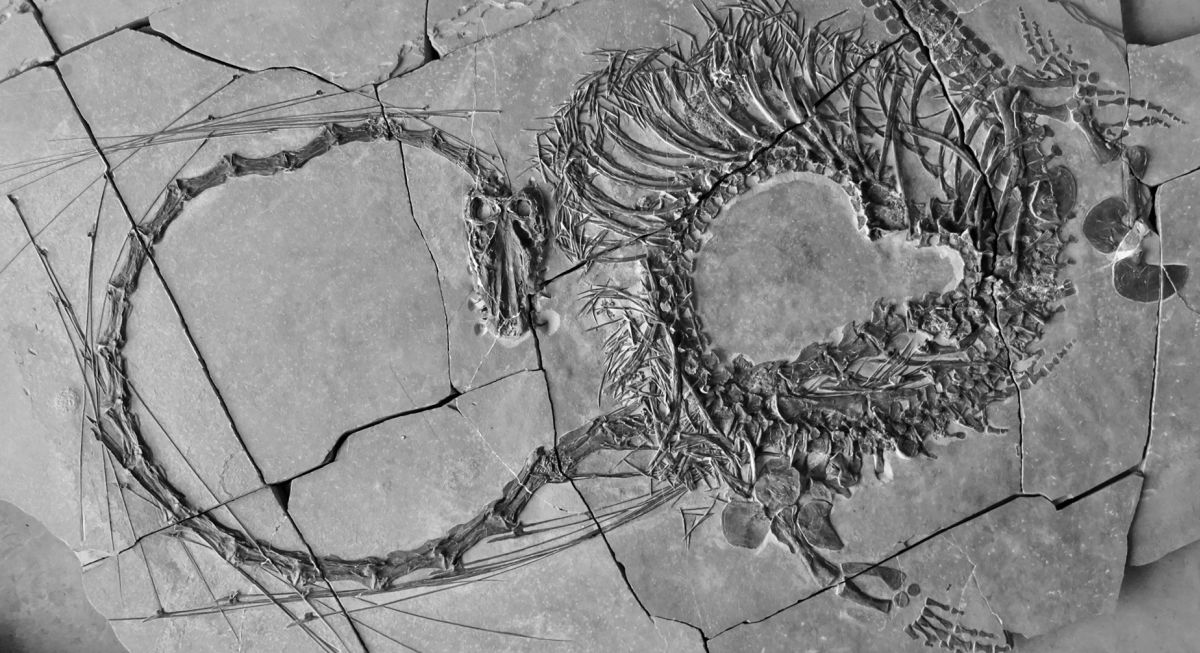A 240-million-year-old “dragon” fossil discovered in China has allowed scientists to unveil the complete creature, named Dinocephalosaurus orientalis, National Museums Scotland (NMS) announced on Friday.
The five-meter-long reptile, from the Triassic period, was first identified in 2003. After studying five more recent specimens over ten years, researchers were able to assemble a fully articulated fossil, providing a “beautiful complete specimen from the tip of the nose to the tip of the tail,” said Dr. Nick Fraser, National Science Officer at NMS.
The fossil, resembling a Chinese dragon, helped researchers understand the creature’s long neck, which likely aided in fishing but still puzzles scientists about its exact function. Fish found in the stomach region of one fossil indicate adaptation to the marine environment, with finned limbs supporting this hypothesis.
The international team of researchers from Scotland, Germany, the United States, and China published their findings in the journal Earth and Environmental Science Transactions of the Royal Society of Edinburgh. Professor Li Chun of the Beijing Institute of Vertebrate Paleontology and Paleoanthropology discovered the fossils in 2003.
The researchers noted that the long neck of Dinocephalosaurus was similar to another ancient marine reptile, Tanystropheus hydroides. Fraser stated, “We’re still having some obstacles, as with many animals in the Triassic, because it really is a strange and wonderful world of all kinds of strange animals doing things that animals today don’t seem to do.”
The discovery of the complete Dinocephalosaurus orientalis offers insights into the mysterious world of ancient marine creatures, providing a glimpse into the unique adaptations and behaviors of prehistoric reptiles.
